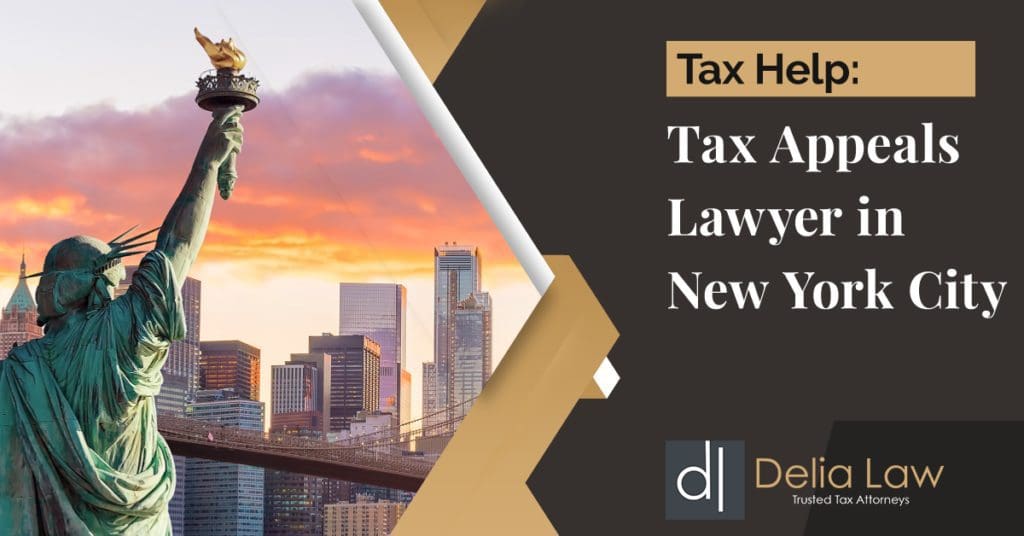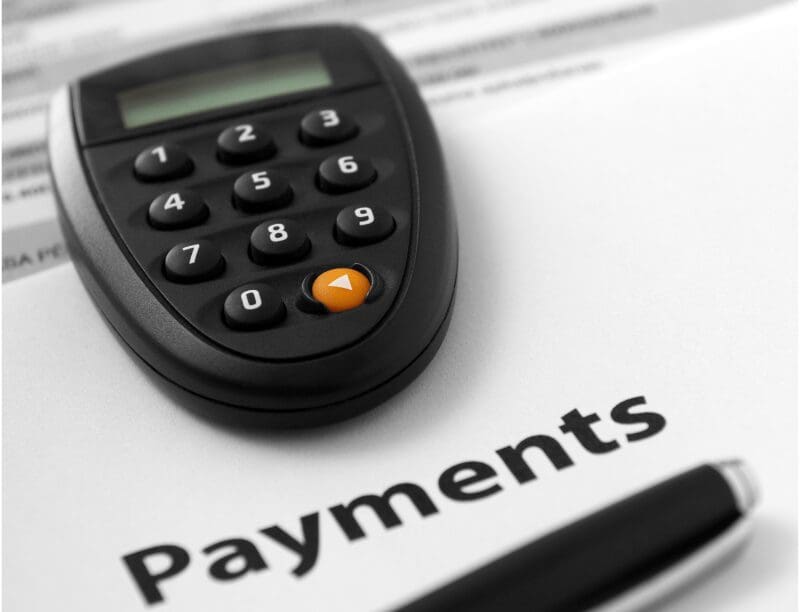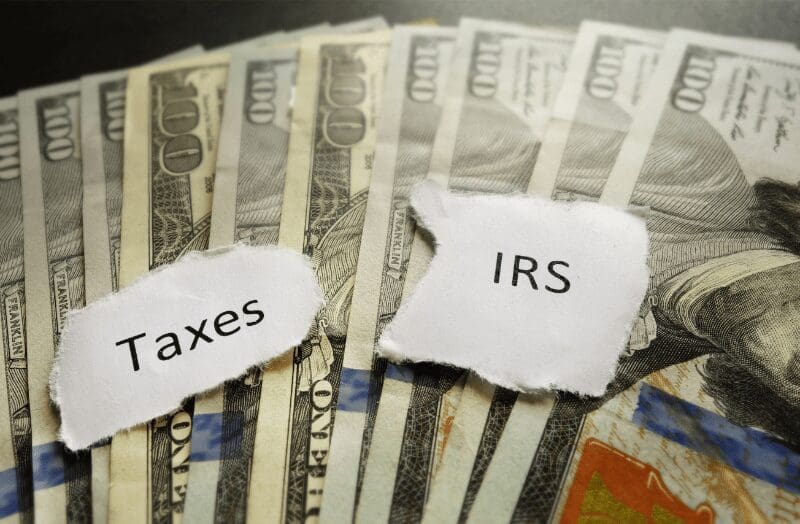Tax Appeals in New York City
& Finding a Tax Appeals Lawyer
Tax appeals are a process by which taxpayers can challenge the assessment of taxes made by tax authorities such as the Internal Revenue Service (IRS) in the United States. Taxpayers have the right to file an appeal if they believe that any tax assessment is incorrect or if they feel they have been mistreated. Appeals can be filed at the federal, state, or local level and may be heard by an administrative tribunal or a New York court.
The appeals process begins with the filing of a notice of appeal, which is a formal request for a review of the taxpayer’s case. This request is typically made to the tax authority that issued the original assessment, although it can also be made to a higher court or administrative body. The tax authority will then review the case and decide whether the appeal is valid. If the appeal is valid, a hearing will be scheduled where both the taxpayer and the tax authority can present their evidence and arguments. After hearing both sides, the appeals panel will decide on the case and issue a ruling.
There are several different grounds on which a New York taxpayer can base their appeal, such as:
- Errors in the calculation of the tax. Any errors in the calculation of the tax owed can be grounds to advance a formal appeal. This could include mathematical mistakes made by the tax authority in calculating the amount of tax owed or errors in the application of tax law. If you believe the tax authority has made a mistake in calculating your taxes, you will need to have evidence to support your claim. For example, you may need to provide copies of tax returns or other financial documents that showcase the discrepancy that was overlooked.
- Unfair treatment. Taxpayers can also claim that they have been treated unfairly by the tax authority, even if the tax assessment itself is accurate. This could include discrimination, harassment, or other inappropriate forms of mistreatment by tax officials. If you are in New York and believe you have been treated unfairly by the tax authority, you will need to provide evidence to support your claim. This could include documentation of the treatment you received, witness statements, or communications with tax officials that all point to the alleged mistreatment.
- Inaccurate information. Taxpayers can also claim that the tax authority has used inaccurate information in calculating their taxes. This could include incorrect information about the taxpayer’s income, deductions, or assets which could dramatically affect the amount of tax owed.
When reviewing your tax documents in New York, it is important to look for any errors or discrepancies that may lead to any of these grounds for an appeal. Some specific things to look for include:
- Check that all sources of income have been accurately reported and that the correct amount has been included. This includes wages, interest and dividends, capital gains, and other types of income. Any errors in the income reporting could lead to an incorrect tax bill that is too high and impacts your refund or tax liability.
- Check that all eligible deductions have been correctly taken. This includes things like job-related expenses, charitable donations, and medical expenses. Because these deductions can significantly reduce your taxable income, it is important to ensure they are correctly accounted for on your tax return.
- Check that all assets, such as property or investments, have been correctly valued. This could significantly impact the amount of tax owed if the asset is over or under-valued. Some red flags that may indicate an incorrect asset value include a sudden change in value from one year to the next or a value that is significantly higher or lower than similar assets.
If you believe there are errors or discrepancies in your tax assessment, you can file a New York appeal with the tax authority. The appeals process can be complex and time consuming, though, so it is advisable to seek professional help if you are considering this option.
Delia Law Can Help You With the Tax Appeals Process in New York
The tax appeals process in New York is a common way for taxpayers to challenge the amount of taxes they owe. However, for many individuals, self-representing in a tax appeal can be an overwhelming process that negatively impacts their ability to fully and fairly present their case.
Delia Law has years of experience representing taxpayers in various tax disputes, including appeals. With our help, you can be confident that knowledgeable and experienced professionals are handling your case. We will work with you to understand the specifics of your case and build a strong argument on your behalf. Contact us today if you are ready to start the appeals process and resolve your tax dispute with the help of our experienced team.
New York-Specific Tax Laws

New York residents are required to pay taxes on income that was earned as well as for federal taxes. In fact, some people who don’t even live in New York must pay state taxes. If you lived elsewhere but acquired the money through a source in New York, you must pay state taxes on that income.
There are four main types of taxes in New York:
- State income tax. New York State has a graduated income state tax, which means your tax rate increases as your income increases. The state’s tax rates range from 4% to 10.90%. For example, if you make under $8,500 annually, you will only be subjected to a 4% tax rate. However, if you make $25,000,001 and over, you are now facing the higher end of the state’s tax bracket at 10.90%.
- Local tax. The local tax is a county-specific tax, and the rates also differ based on income. For example, in Tompkins County, the local tax rate is 4%. In contrast, in Suffolk County, the rate is 4.25%. The variation in local tax rates can make a significant difference in the overall amount of taxes you owe.
- City tax. City taxes are only applicable to those who live or have earned money in New York City. This applies to individuals, trusts, estates, partnerships, S-corporations, and corporations. The city tax rate is 3.078%, 3.762%, 3,819%, and 3.876% depending on the bracket your income qualifies for.
- Corporate tax. If you are a business owner, you are also required to pay corporate income tax. The tax rate on your corporate income ranges from 6.50% to 7.25%. These taxes generated from businesses is one of the main sources of revenue for the state of New York, and it helps to fund many of the state’s programs and services that benefit its residents.












